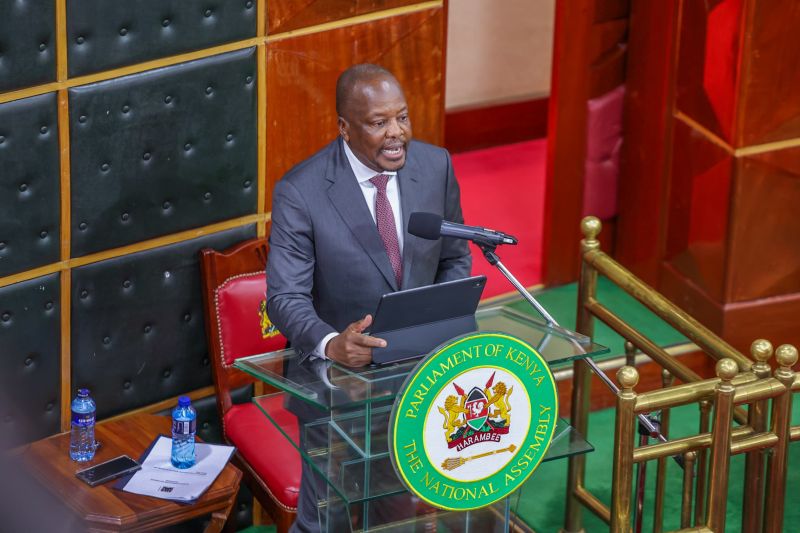How Gen Z used caricatures, humour to criticise government officials

PS Omollo said they do not intend to take any legal action against the person drawing the trending Ruto cartoons on social media, especially, the X platform.
When the government cracked down on protesters staging demonstrations against its zeal for over-taxation back in June this year, it had little idea of how the suppressed agitation would metamorphose into a sustained online
criticism of public officials.
More To Read
- Families of Gen Z protest victims demand justice before compensation
- Terrorism or protest? What Kenyan law says about anti-government demos and charges
- Lobby demands independent inquiry into protest deaths, including Albert Ojwang’s custody case
- Government sued for blocking CBD roads during protests, lobby demands removal of barricades
- Protest essentials: A look into what to carry to stay safe, alert, and resilient
- From protests to the office: How Gen Z is reshaping Kenya’s work culture and social norms
Kenyans in online interactive platforms such as X, Facebook, TikTok and Instagram have had cartoon caricatures of President William Ruto and other state officials shared indiscriminately.
The caricatures that have been accompanied by mocking monikers such as #Kasongo and #Must Go depict the president in various situations. So viral are the cartoons that have attracted observations from
government officials.
The government, through the Ministry of Internal Security, weighed in on the viral caricatures. Principal Secretary for Internal Security, Raymond Omollo said they do not intend to take any legal action against the person drawing the trending Ruto cartoons on social media, especially, the X platform.
“The level of creativity of Kenyans is quite amazing and interesting. It demonstrates what is possible with technology. They can even look for ways to monetize it in a manner that is not ridiculous,” PS Omollo
stated.
“I have said many times…but nobody listens to me…why are the police not ARRESTING this cartoonist? This is not freedom of speech. This is peddling hatred and painting our leaders BLACK,” wrote Ahmednassir on his X account.
The outspoken lawyer was seemingly angered by a caricature of Raila, Ruto and Uhuru in one boat.
Traditional political settlement
Senior Political Commentator Cosmas Kanyadudi told The Eastleigh Voice that the youth have challenged the established political order and tested the traditional political settlement theories that suggest power is primarily held by political elites.
“The use of social media to put duty bearers to task could potentially lead to a shift in political power and the onset of a co-shared political power era of governance and public scrutiny on the affairs of the state,” explains Kanyadudi.
According to Kanyadudi, Gen-Z has redefined the organisation and conduct of protests. By using technology, especially social media to coordinate and validate their concerns, garner support from allies – including millennials and civil society – as well as communicate and orchestrate peaceful nationwide protests, they have reshaped the negative perception often associated with protests involving violence and destruction.
In his view, the traditional political base in Kenya has been largely organised along tribal lines, with tribal alliances playing a key role in forming the ruling leader’s block. However, recent events, including the Gen-Z protests, suggest a shift towards issue-based politics that transcends ethnicity and emphasises the push for change.
Top Stories Today
















































